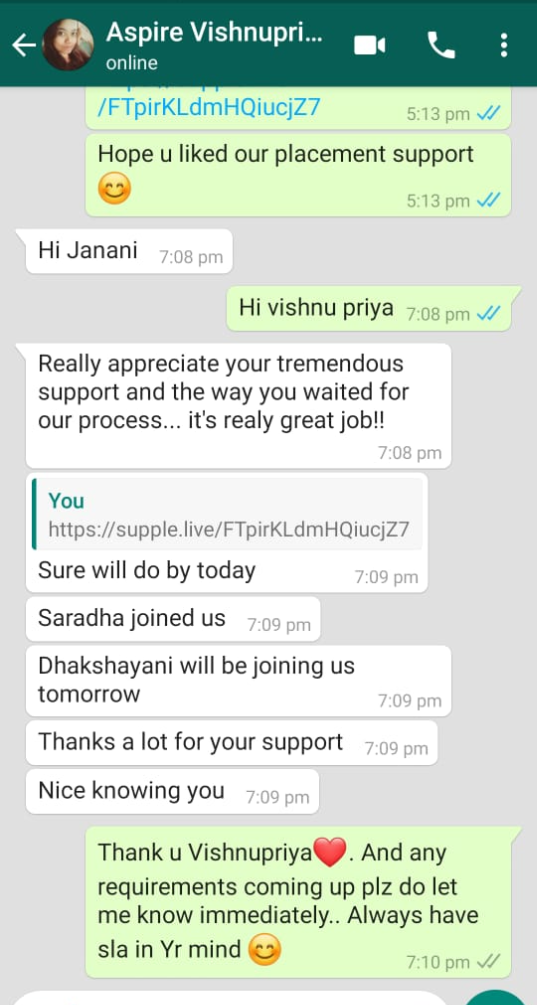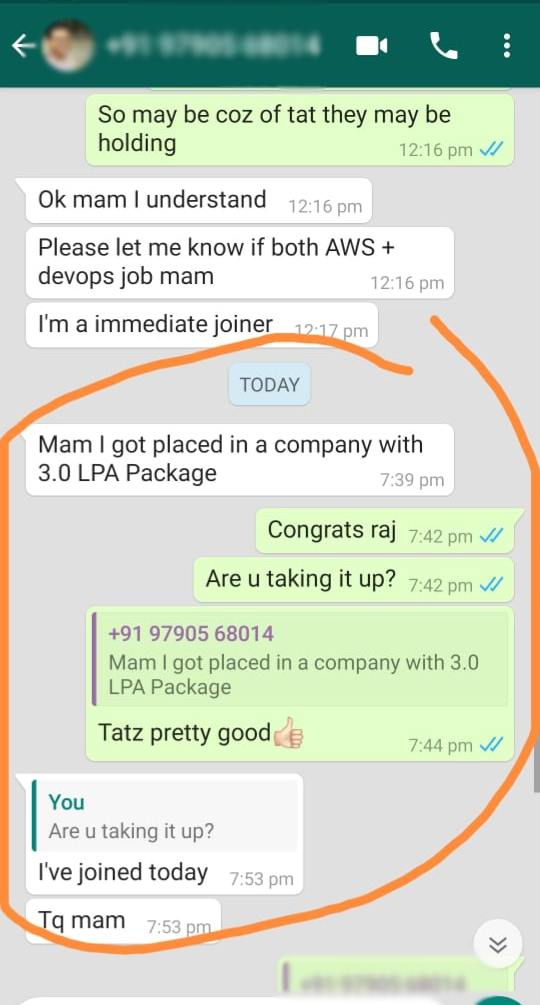DIGITAL HUB TECH
Learn With Us
Improve With Us
Learn With Us
Improve With Us
Database Job Oriented and Certification Training Program
Become a Database expert in just 60 Days with master essential by working on real-world case studies in this course!
- Make expertise in Database with our Masters' Program with Deep Knowledge from Highly Experienced and Expert Faculty.
- Work on Real-World Projects.
- Acquire hands-on experience with creating Complex Script.
- Receive placement assistance upon completing the course.
- Earn Certification through our Course with Exam.
- Use the Expert delivered Skills in any data related Technologies like Data Warehouse, ETL, Big Data, Cloud Data Engineer, Data Analytics,etc.

Database Training Key Highlights
40 Hrs Instructor Led Training
20 Hrs Self-paced Videos
30 Hrs Project & Exercises
Certification
Job Assistance
Flexible Schedule
Lifetime Free Upgrade
Mentor Support
Database Training Course Outline
Pre Requisite
- Basics of computer
- Fundamental Theory of Database
SQL - Structure Query Language
- Database & SQL Introduction
- Data Types
- Entering to SQL Query Writing
- SQL Statements/Commands
- Constraints
- Clauses
- Basic Operator
- Set Operator
- Top N Analysis
- Pseduo Column
- Virtual Table & Column
- Join
- Sub Query
- Object
Common Table Expression (CTE)
Conditional Statement
System Defined Function
User Defined Function
Pivoting
Regular Expression
- Procedure
PL/SQL
Introduction to PL/SQL
Features and Advantages of PL/SQL
Constants, Variables, Literals
Data Types and Program Structure
Sections, Descriptions, DBMS Output
PL/SQL Architecture & Oracle Database Architecture
Physical vs Logical Structure
Memory Structures, Background Processes
2-Tier, 3-Tier, N-Tier Architectures
Conditional Statements (IF, CASE, GOTO, EXIT)
Looping Constructs (Simple, WHILE, FOR, Nested Loops, CONTINUE)
String Handling (Types, Declaration, Functions)
Arrays (Varray Types and Declarations)
Records (Types, Accessing Fields, Parameters)
Creating and Executing Procedures
Procedure Parameters (Modes, Notations)
User-Defined Functions (Return, Call, Drop, Inline, Recursive)
Table Functions
Differences between Procedures and Functions
Cursor Basics and Types
Cursor Attributes, Parameters, Nested Cursors
Sub Queries, Cursor Operations (Declare, Open, Fetch, Close)
Transactions: Start, Commit, Rollback, Savepoints
Automatic Transaction Control
Object-Oriented Features (Object Types, Tables, Methods, Inheritance)
Triggers (Types, Creation, DML vs DDL, Auditing)
Exception Handling (Predefined & User-defined, SQL Error Codes, PRAGMA)
Packages (Specification, Body, Public/Private Objects, State, UTL_FILE I/O)
Collections (Index-By Tables, Nested Tables, Methods, Exceptions)
Working with LOBs (CLOB, BLOB, BFILE, DBMS_LOB Routines)
Basic DBA Concepts (Database, Tablespaces, Types, Data Files, Data Dictionary)
DBA - Database Administrator
Exploring the Oracle Database Architecture
Oracle Database Architecture Overview
Oracle ASM Architecture Overview
Process Architecture
Memory structures
Logical and physical storage structures
ASM storage components
Installing your Oracle Software
Installation: System Requirements
Oracle Universal Installer (OUI)
Installing Oracle Grid Infrastructure
Installing Oracle Database Software
Silent Install
Tasks of an Oracle Database Administrator
Tools Used to Administer an Oracle Database
Creating an Oracle Database
Planning the Database
Using the DBCA to Create a Database
Password Management
Creating a Database Design Template
Using the DBCA to Delete a Database
Managing the Oracle Instance
Start and stop the Oracle database and components
Use Oracle Enterprise Manager
Access a database with SQLPlus
Modify database installation parameters
Describe the stages of database startup
Describe database shutdown options
View the alert log
Access dynamic performance views
Manage the ASM Instance
Set up initialization parameter files for ASM instance
Start up and shut down ASM instances
Administer ASM disk groups
Configuring the Oracle Network Environment
Use Enterprise Manager to create and configure the Listener
Enable Oracle Restart to monitor the listener
Use tnsping to test Oracle Net connectivity
Identify when to use shared servers and when to use dedicated servers
Managing Database Storage Structures
Storage Structures
How Table Data Is Stored
Anatomy of a Database Block
Space Management in Tablespaces
Tablespaces in the Preconfigured Database
Actions with Tablespaces
Oracle Managed Files (OMF)
Administering User Security
Database User Accounts
Predefined Administrative Accounts
Benefits of Roles
Predefined Roles
Implementing Profiles
Managing Data Concurrency
Data Concurrency
Enqueue Mechanism
Resolving Lock Conflicts
Deadlocks
Managing Undo Data
Data Manipulation
Transactions and Undo Data
Undo Data Versus Redo Data
Configuring Undo Retention
- Implementing Oracle Database Auditing
Describe DBA responsibilities for security
Enable standard database auditing
Specify audit options
Review audit information
Maintain the audit trail
Manage optimizer statistics
Manage the Automatic Workload Repository (AWR)
Use the Automatic Database Diagnostic Monitor (ADDM)
Describe and use the advisory framework
Set alert thresholds
Use server-generated alerts
Use automated tasks
Performance Management
Performance Monitoring
Managing Memory Components
Enabling Automatic Memory Management (AMM)
Automatic Shared Memory Advisor
Using Memory Advisors
Dynamic Performance Statistics
Troubleshooting and Tuning Views
Invalid and Unusable Objects
- Backup and Recovery Concepts
PStatement Failure
PUser Error
PUnderstanding Instance Recovery
PPhases of Instance Recovery
PUsing the MTTR Advisor
PMedia Failure
P Archive Log Files
Performing Database Backups using RMAN
Backup Solutions: Overview
Oracle Secure Backup
User-Managed Backup
Terminology
Recovery Manager (RMAN)
Configuring Backup Settings
Backing Up the Control File to a Trace File
Monitoring the Flash Recovery Area
Opening a Database
Data Recovery Advisor
Loss of a Control File
Loss of a Redo Log File
Data Failures
Listing Data Failures
Data Recovery Advisor Views
- Data Replication
Describe ways to move data
Create and use directory objects
Use SQL*Loader to move data
Use external tables to move data
General architecture of Oracle Data Pump
Use Data Pump export and import to move data
Working with Support
Use the Enterprise Manager Support Workbench
Work with Oracle Support
Log service requests (SR)
Manage patches
Using the RMAN Recovery Catalog
Identify situations that require RMAN recovery catalog
Create and configure a recovery catalog
Synchronize the recovery catalog
Create and Use RMAN stored scripts
Back up the recovery catalog
Create and use a virtual private catalog
Configuring Backup Specifications
Allocate channels to use in backing up
Configure backup optimization
Using RMAN to Create Backups
Create image file backups
Create a whole database backup
Enable fast incremental backup
Create duplex backup and back up backup sets
Create an archival backup for long-term retention
Create a multisection, compressed and encrypted backup
Report on and maintain backups
Performing User-Managed Backup and Recovery
Recover from a lost TEMP file and redo log group
Recover from the loss of password file
Perform user-managed complete and incomplete database recovery
Perform user-managed and server managed backups
Identify the need of backup mode
Back up and recover a control file
Using RMAN to Perform Recovery
Perform complete recovery from a critical or noncritical data file loss using RMAN
Perform incomplete recovery using RMAN
Recover using incrementally updated backups
Switch to image copies for fast recovery
Restore a database onto a new host
Recover using a backup control file
Using RMAN to Duplicate a Database
Creating a duplicate database
Using a duplicate database
Monitoring and Tuning RMAN
Monitoring RMAN sessions and jobs
Tuning RMAN
Configure RMAN for Asynchronous I/O
ASM TOPICS
Database Architecture and ASM
Describe Automatic Storage Management (ASM)
Set up initialization parameter files for ASM and database instances
Start up and shut down ASM instances
Administer ASM disk groups
Storage Fundamentals
ASM Concepts
Preparing ASM Storage
ASM Instance setup
ASM diskgroupsFailure groups (Redundancy)
Managing Diskgroups
Backing up Diskgroups
Monitoring Diskgroups
Creating Database on ASM
Managing Database on ASM
Basic architecture
Storage concepts
Who Should Enroll?
Eligibility/Qualification

Aspiring IT Professionals
Whether you hold a degree in B.E, B.Tech, MCA, MBA, M.Sc, MS, ME, M.Tech, BCA, BSC, BCom, or BA, this course is your stepping stone to a thriving career in IT.

Current IT Experts
Developers, Testers, Production Support - elevate your career with advanced Power BI skills.

Students & Freshers
All streams of Graduates & Post-Graduates are welcome to explore the dynamic world of data with us.
Become a sought-after data professional with our Database Training Course. Sign up today and take the first step towards mastering business intelligence.
Training Pattern Details
- Training Quality: Full Stack Deep Drive Training
- Exercise: Home Exercise, Class Exercise, Informative Exercise
- Class Recordings: Every Regular Running Class Recordings
- Class Notes: Every Regular Running Class Notes
- Topic Wise Notes: Detail Level Topic wise Notes
- E-Books: Required Soft Copy for Reference
- Important Soft Copy Docs
- Hard Copy Materials/Books
- Certification Exam Dump: For Certification Exam Reference
- Mock Interview Preparation
- Resume Build
- Project End-to-End Understanding
- Interview/Job Assistance
Job Placed









































Appreciations through WhatsApp
































Why Choose Us?


Top Database Training Institutes
Ranked among the best in the city, with a legacy of excellence.


Best Database Training
Learn from industry veterans with real-world experience.


Database Certification
Gain a credential that opens doors to thriving career opportunities.




Database Course Near You
Accessible learning, wherever you are.


Database Training
Flexible and interactive virtual classrooms.


Database Classes Online
Engage with peers and instructors in a dynamic learning environment.
Database Salary Comparison Data


Top Recruiters for Database




















Course Objectives:
- Provide a comprehensive understanding of the Database
- Teach participants how to design, develop, and implement efficient workflows
- Enable participants to understand and apply data modelling techniques
- Develop proficiency in data quality management, data validation and error handling
- Expose participants to real-world Project scenarios and best practices
- Prepare participants for Complex Task and Troubleshooting
- Enhance participants' ability to design and optimize processes for improved performance and scalability
FAQ's
You can cover from that Class Recording and ask doubt in Live Session.
We will arrange backup classes for you or you can attend our next batch.
You can contact our team and we will get back to you with the course fee details.
We offer Online as well as Offline (Limited) with One-to-One or Batch.
We provide Live Projects during the Course in a Real Time Scenarios based practical manner.
Yes, we can schedule 1-2 free demo class.
Yes, we provide All Class Recordings, Materials, Notes, Exercises, etc.
Yes of course, Our Institute is Govt. registered and we give Course Completion Certificate.
Our Trainers/Instructors are having more and Well Experience in respective Course & IT Job Fields.
We provide in Deep Drive Advance Level Training to get multiple Job Offers with High Packages to settle the Long Career.
OUR COURSES
We Offer Various Courses. Here Are the Courses From Digital Hub Tech.
ETL
- ETL TESTING
- ETL DEVELOPMENT : IICS
- ETL DEVELOPMENT : INFORMATICA POWER CENTER
Unix/Linux
- UNIX SHELL SCRIPT
- LINUX ADMIN
DevOps
- AWS
- AZURE
Database
- SQL
- PL/SQL
- DBA
- SEO
- SMM
- SEM
- SMA
Cloud Data Engineer
- AWS
- GCP
- AZURE
- SNOWFLAKE
- BIG DATA HADOOP
- SPARK
Automation Testing
- API
- RPA
- TOSCA
- SELENIUM
- PERFOMANCE
Full Stack Program
- UI
- JAVA
- PYTHON
- DOT NET
Scrum/Agile
- SCRUM MASTER
- AGILE COACH
Salesforce
- ADMIN
- DEVELOPMENT
Mulesoft
- ADMIN
- DEVELOPMENT
Servicenow
- ADMIN
- DEVELOPMENT
Programming Languages
- C
- C++
- Data Structure
Software Testing
- Manual Testing
- Test Management Tool
SAS
- ADMIN
- DEVELOPMENT
BI Tools
- POWER BI
- TABLEAU




